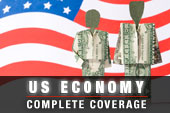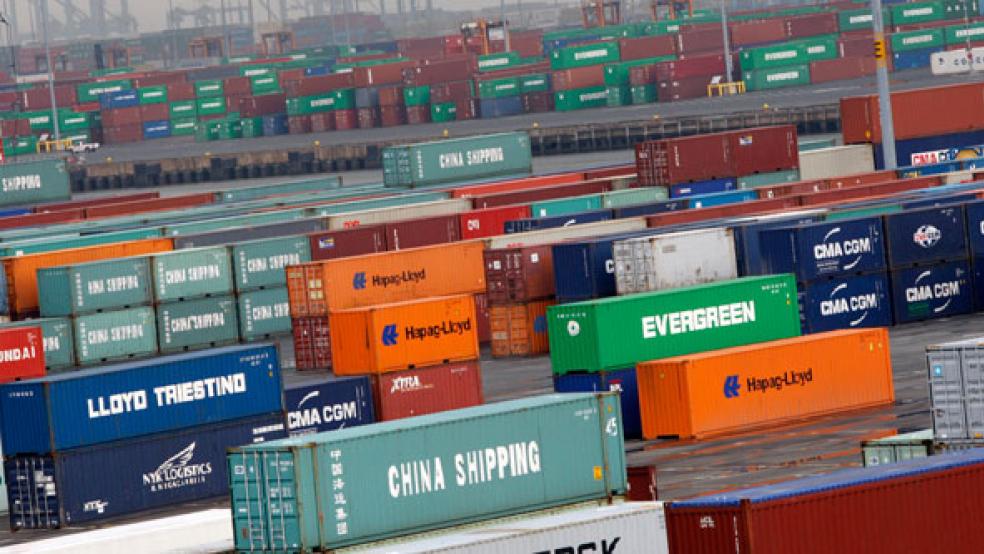Currency wars may have consumed the financial gnomes gathered for the World Economic Forum in Davos this past weekend but that doesn’t keep Americans up at night. Americans’ economic and fiscal anxieties have been cauterized by economic apologists like Paul Krugman, who has repeatedly argued that growth is inevitable and deficits don’t matter, and by President Obama whose dedication to our recovery is such that it barely scored a mention in his second inaugural address. (This may mystify those 23 million Americans unable to find full-time work.) We have also been anaesthetized by soaring stock prices – normally a hallmark of robust growth.

Pesky Republicans keep trying to pull back the fiscal curtain, noting that the Federal Reserve is almost single-handedly keeping the economy stuttering forward. By pumping some $85 billion a month into financial markets, Fed Chief Ben Bernanke has inflated stock and commodity prices, managed interest rates lower and home-buying higher, and in the process blown up the Fed’s balance sheet to four trillion dollars.
Meanwhile, in the real world, China’s currency regulator was cautioning his counterparts in Davos against driving down exchange rates – responding in particular to the recent slide in the Japanese yen which tripped currency moves in Taiwan, India and other emerging markets. Why is this a concern to us? Because it signals that competition for markets has never been more intense; every nation is hell-bent on winning more of the slowly expanding global pie, while the U.S. has not yet even suited up. Our future ability to make good on the entitlements programs so dear to voters may well depend on such mundane matters as competing in foreign markets, and expanding our exports.
President Obama in fact embraced this reality in his first term; one of his few economic ambitions was to double U.S. exports. Not only would this be a way to gin up economic output, it would also temper the seemingly intractable trade deficits that ultimately sap our economy. The United States has run a trade deficit every year since 1975, for an accumulated imbalance of more than $8.5 trillion. Even for a commerce naïf like the president, selling more overseas is clearly a positive, and he cheered business leaders by making export growth a high priority.
Like so many of President Obama’s ambitions, this one attracted more words than actions. The president targeted the 100 percent rise in exports in his 2010 State of the Union Address. In that year, sales outside the country increased by a promising 16.6 percent. In 2011, growth was nearly 7 percent, but last year the category slowed. The most recent data shows that for the first 11 months, exports rose only 4.5 percent -- the November tally was only 3.3 percent higher year-over-year. Worse, the non-petroleum deficit in November was the highest since 2007.
Slowing growth in many markets contributed to the downtick in export gains. But so has our lack of strategy and purpose. One of the few gifts left behind by the Bush administration was the nearly-completed trade agreements with South Korea, Panama and Colombia which were finalized in 2011. Other than following through on those initiatives, the White House has accomplished little.
Meanwhile, the staid old EU, agile as an octogenarian with gout, has just in the past year ratified trade agreements with Colombia and Peru, South Korea, the countries of Central America, Singapore, four countries in Eastern and South Africa and is on the cusp of wrapping up a deal with Canada that is reported to be that country’s largest ever.
U.S. trade negotiations have been led by Ron Kirk, a former Dallas mayor and golfing buddy of President Obama, who is now leaving his post. Mr. Kirk’s pursuit of expanded trade has been hobbled by resistance from organized labor, which opposes reciprocal opening of markets for fear our workers cannot compete. Union-backed groups like Public Citizen have rallied Democrat lawmakers to resist new trade deals and try to unravel existing ones like NAFTA.
Kirk has had to mollify organized labor by aggressively pursuing unfair trade practices, which he has done with some success. At the same time, the administration has moved cautiously, targeting increased exports in areas less likely to ruffle Big Labor’s feathers. When he laid out his goal, Mr. Obama cited “farmers and small businesses” as groups he would focus on. Just before his exit, Mr. Kirk took pride in announcing both an ongoing effort to build exports of services – which account for about 29 percent of the total -- and a new deal with the Japanese, in which they have agreed to expand their imports of U.S. beef. While helpful, such measures are like trying to fix our congested airports by adding a new runway in Martha’s Vineyard -- not exactly central to the mission.
President Obama was right to push for expanded exports. As is noted on the U.S. Commercial Service website, some 95 percent of the world’s consumers live outside the U.S. and, according to the IMF, 87 percent of the world’s growth in the next five years will take place in foreign countries. However, it will take more than a couple of campaign slogans to get us in the game, especially when nearly every other country in the world is willing to do nearly anything -- including debase their currency – to take the lead.
Obama was right when he said, “If America sits on the sidelines while other nations sign trade deals, we will lose the chance to create jobs on our shores.” Perhaps he should jumpstart the process with a trade pact with our own trade unions.






